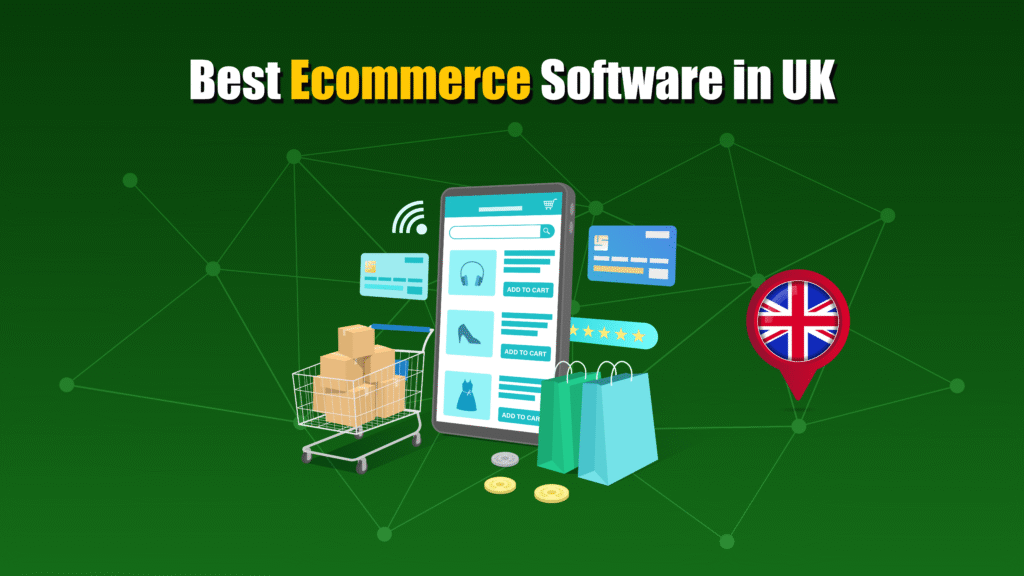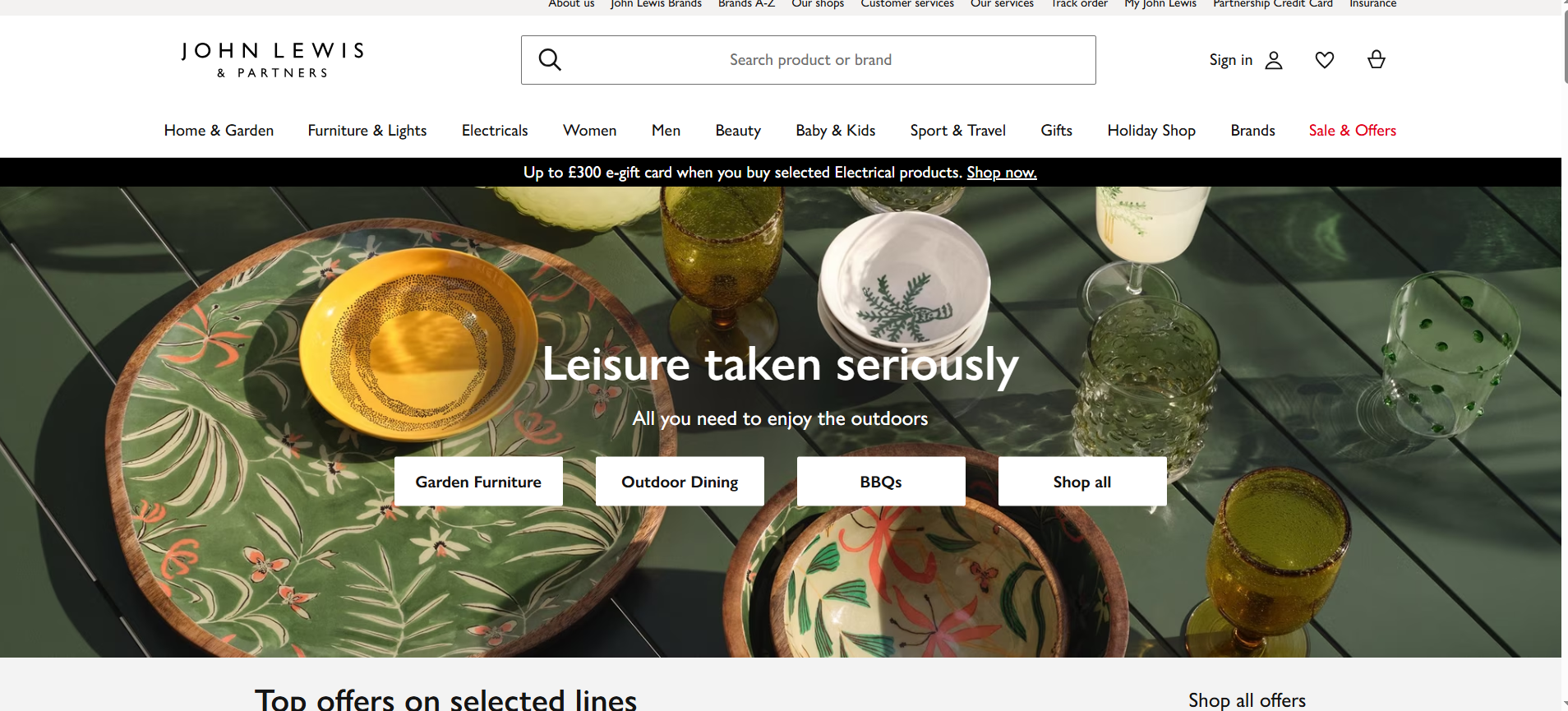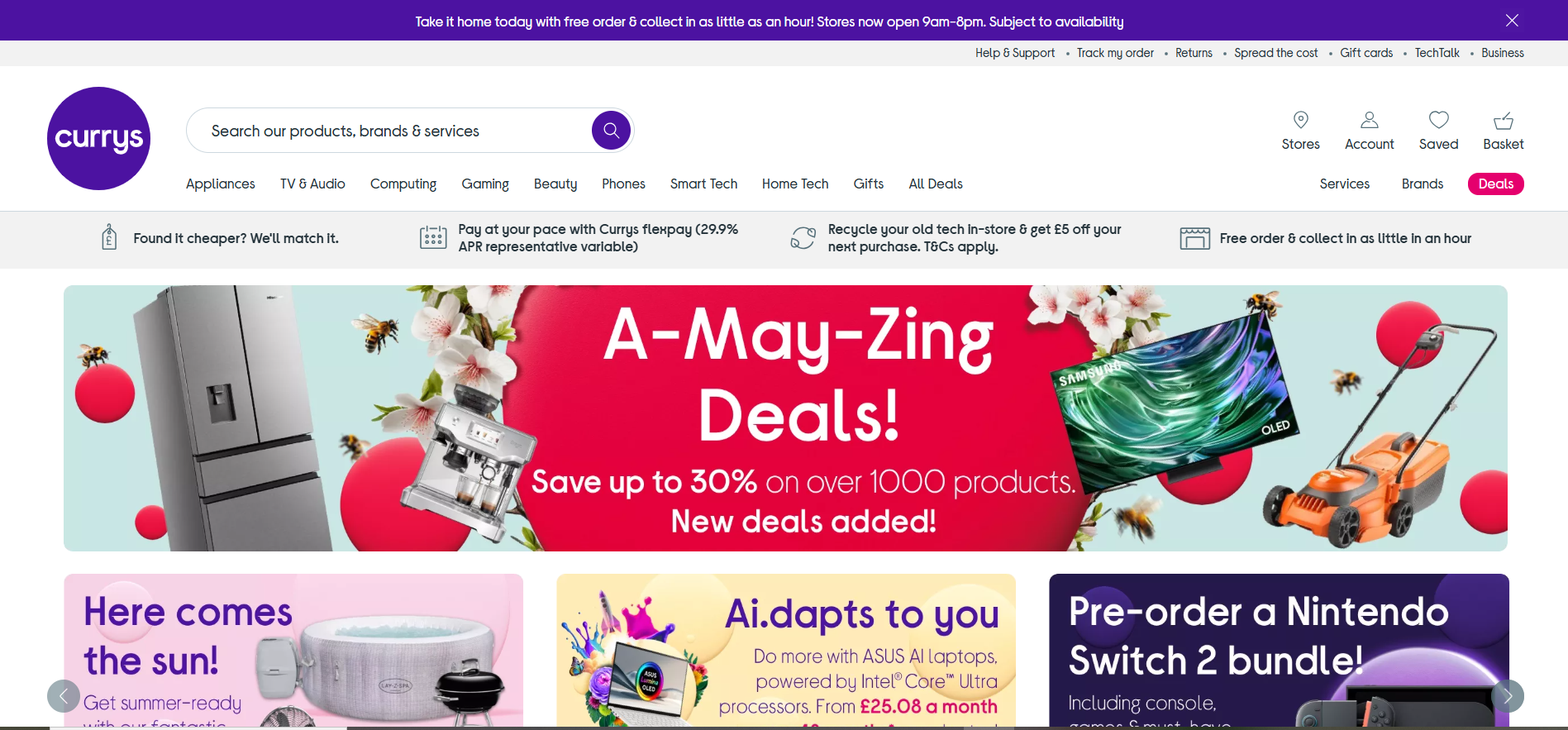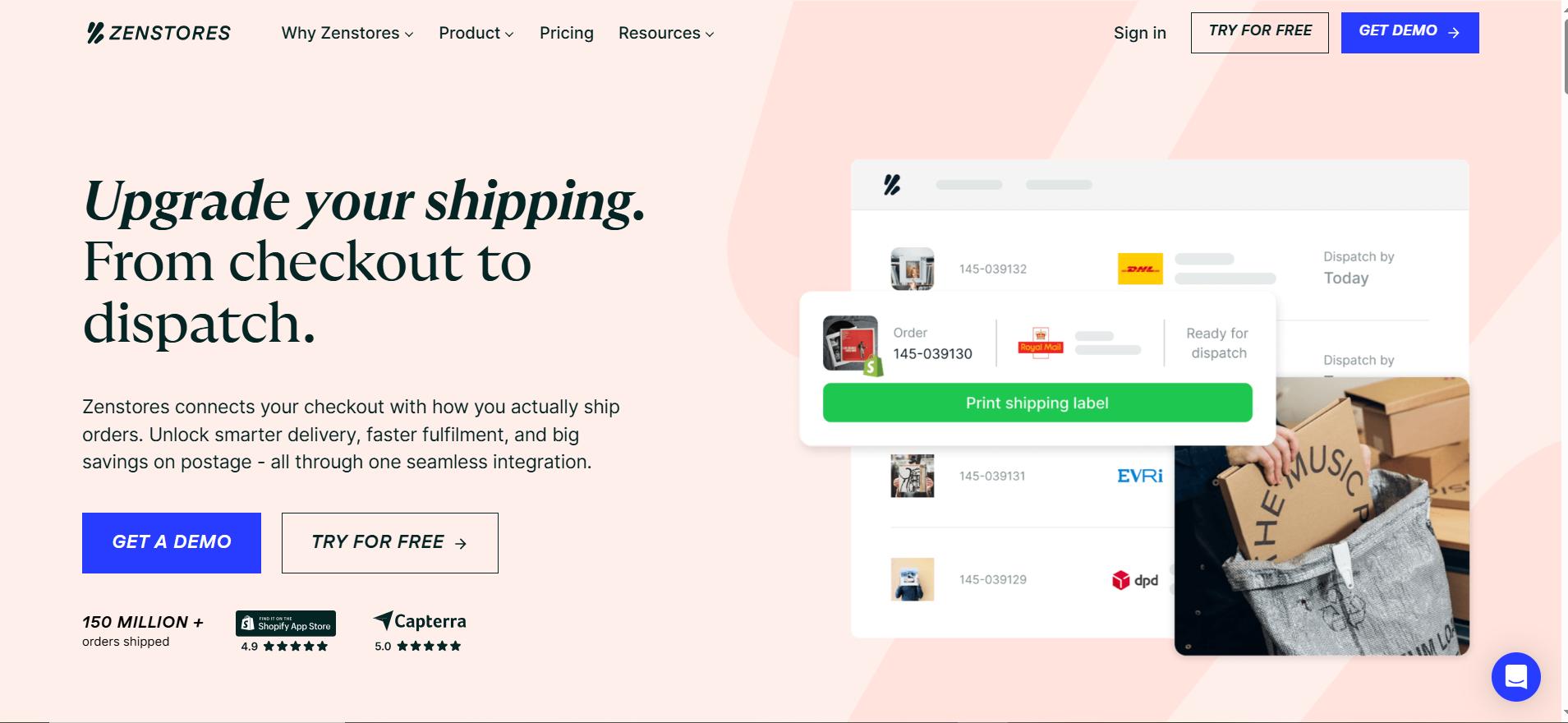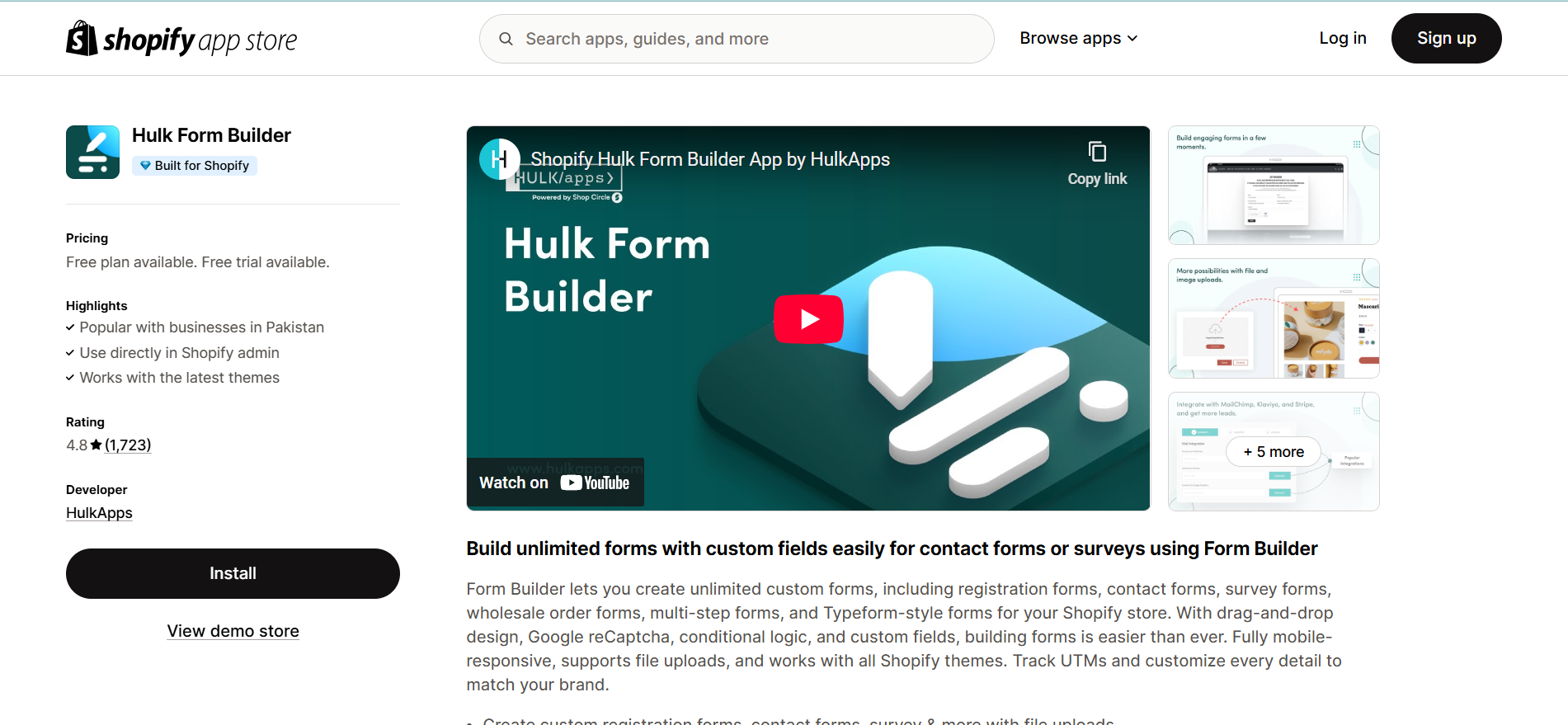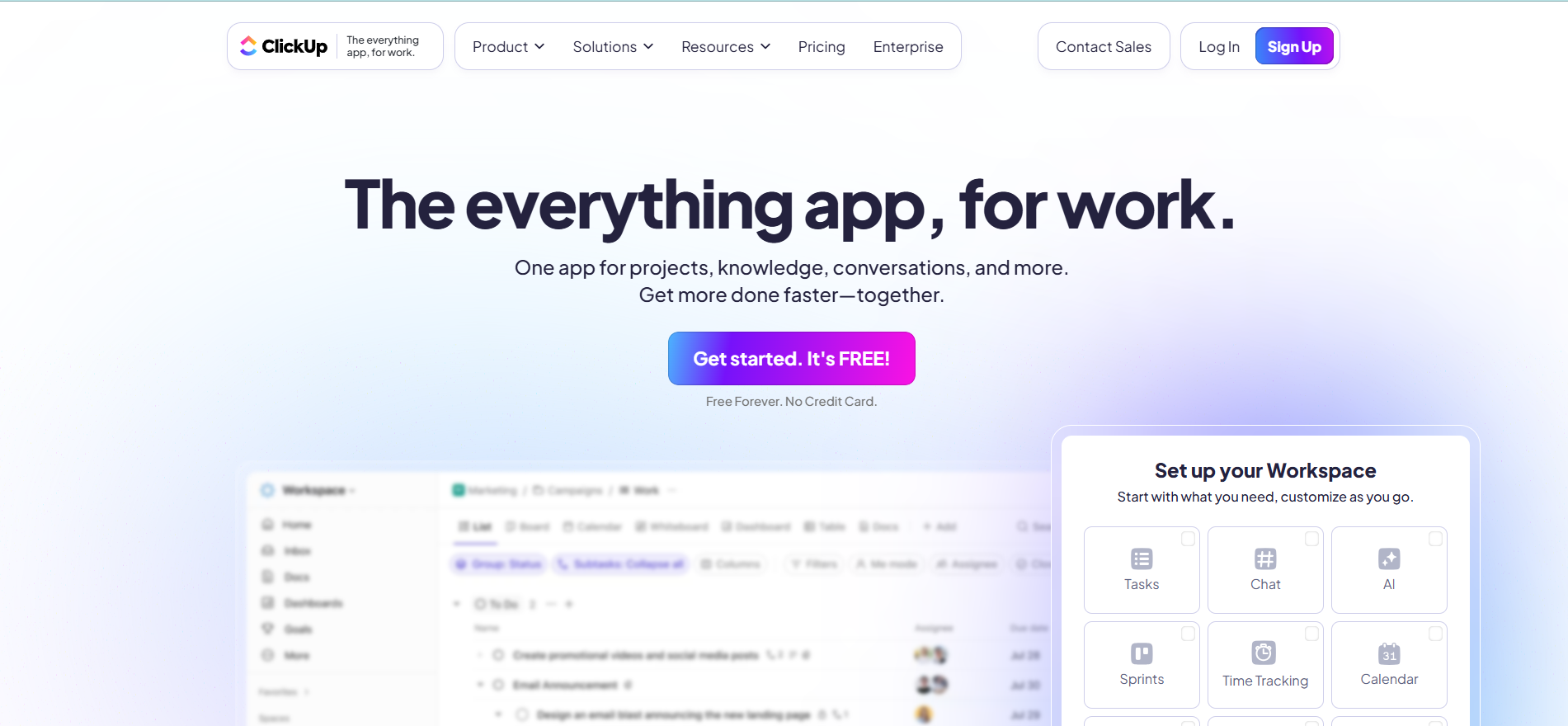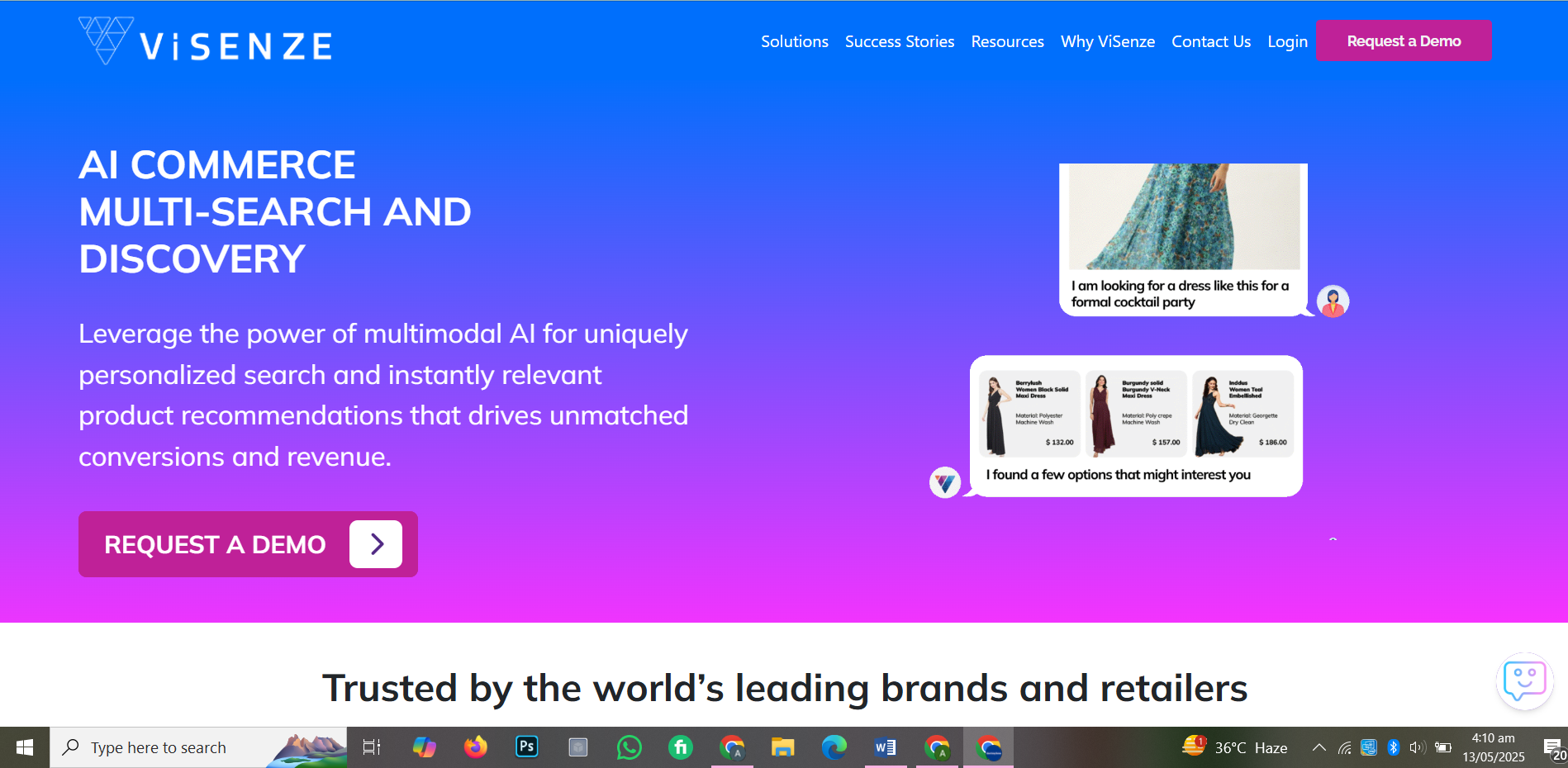Choosing the right ecommerce software in UK is essential for managing online sales, ensuring smooth operations, and generating accurate reports. Whether you’re a small business, a freelancer, or running a large-scale e-commerce store, the right platform can help you streamline operations, stay compliant with tax laws, and reduce manual errors.
Today’s top ecommerce software in UK offers cloud-based access, automation, and features like inventory management, order tracking, payment processing, VAT/GST compliance, and real-time analytics—all in one secure system. Many platforms now support multiple currencies, languages, and region-specific tax regulations, making them ideal for global use, particularly in the UK.
To help you make an informed decision, we’ve carefully evaluated and ranked the 15 best e-commerce software platforms in the UK for 2026, based on features, ease of use, pricing, scalability, integrations, and real user feedback.
Here’s a quick snapshot of the top picks:
- Shopify – Best Overall for Small to Medium-Sized Businesses
- Amazon UK – Best for Large-Scale Retailers
- eBay UK – Best for Auctions and Marketplace Selling
- Argos – Best for Large Retailers with a Brick-and-Mortar Presence
- Tesco – Best for Supermarket E-commerce
- Asda – Best for Multi-Channel Retailers
- Marks & Spencer (M&S) – Best for High-End Retailers
- Next – Best for Fashion and Apparel Stores
- John Lewis & Partners – Best for Premium Products
- Currys PC World – Best for Electronics Retailers
- Zenstores – Best for E-commerce Automation
- Hulk Form Builder – Best for Custom E-commerce Forms
- Klaviyo – Best for Marketing Automation and Customer Retargeting
- ClickUp – Best for E-commerce Project Management
- ViSenze – Best for AI-Driven E-commerce Solutions
Before You Continue…
Before selecting the right e-commerce software in the UK for your business, it’s important to verify your business structure, transaction volume, and tax region. Match your needs to platform features such as multi-currency support, VAT compliance, real-time reporting, and integration with external tools like POS systems, CRMs, and payment gateways. Evaluate the platform’s scalability, cloud accessibility, and compliance coverage to ensure it fits your business needs, both now and in the future.
Questions to Ask When Choosing the Right E-commerce Software UK
-
Does the platform comply with local tax regulations, including VAT and regional tax rules?
Ensure the platform supports compliance with VAT, MTD, and local tax laws to avoid legal issues when selling products online. -
Can the platform integrate with your existing tools and systems?
Check whether the platform integrates with tools you already use, such as payment processors, accounting software, CRMs, or marketing automation tools. -
Does the platform provide real-time reporting and analytics?
Real-time reporting and analytics allow you to track sales, monitor inventory, and analyze customer behavior to make data-driven decisions. -
Is the platform scalable to support your business as it grows?
Evaluate whether the platform can grow with your business, from handling more users and orders to supporting multiple regions or product categories. -
Does it include mobile access and cloud-based functionality?
Mobile access and cloud-based systems offer flexibility and allow you to manage your online store from anywhere at any time.
How This Top 15 List Was Created
To create this list of the top 15 e-commerce software platforms in the UK for 2025, we analyzed user feedback, industry trends, and expert reviews. The platforms were evaluated based on key attributes such as ease of use, scalability, features, customer support, and compliance with tax and legal regulations. We also considered integrations, pricing, and availability across different regions to ensure relevance for a wide range of businesses. By reviewing reliable sources, we ensured that each platform meets the needs of its target audience, whether for freelancers, small and medium-sized businesses (SMBs), or large enterprises.
Differences in Pricing and Pricing Models
Pricing is a crucial factor when selecting e-commerce software in the UK, particularly for startups, freelancers, and small businesses. Different providers adopt various pricing models, which can make direct comparisons challenging. Some charge based on the number of users or sales, while others use tiered models based on features, store size, or the inclusion of additional tools like marketing and inventory management.
Pricing Comparison for Small Teams and Startups:
For small businesses or startups, platforms like Shopify, Wave Accounting, and FreshBooks offer affordable pricing, starting from free for basic features or around $15/month for essential features like invoicing, reporting, and basic e-commerce management. These platforms are ideal for businesses with basic needs, providing simple, scalable options with no hidden fees.
Pricing Comparison for Growing SMEs and Enterprises:
For mid-sized businesses or those needing more robust functionality, platforms like QuickBooks Online and Xero start around $25–$50/month, offering advanced features like multi-currency support, integrations, and automated tax calculations. These platforms cater to growing teams, offering flexible plans that can scale with your business.
Freemium Options for Testing:
Some platforms, such as Zoho Books and Kashoo, offer freemium models. These are great for businesses that want to test out the software before committing to a paid plan, allowing them to explore core features without any upfront cost.
Want to explore the full breakdown of features and value? Keep reading for detailed reviews of the top 15 ecommerce Software in UK for 2025.
#1. Shopify – Best Overall for Small to Medium-Sized Businesses

Shopify is a leading e-commerce platform known for its ease of use, scalability, and extensive app marketplace. Ideal for small to medium-sized businesses, it offers an intuitive interface for setting up and managing online stores. Shopify supports multi-currency, multi-language capabilities, and integrates seamlessly with hundreds of apps, including payment processors, shipping providers, and marketing tools.
Features
- Easy-to-use drag-and-drop store builder
- Multi-currency and multi-language support
- Inventory management and order tracking
- Integration with over 750 apps
- Mobile-friendly, cloud-based, and secure
Reviews
Shopify receives high praise for its user-friendly interface, ease of setup, and flexibility for small businesses. Users love the scalability and access to various apps that enhance functionality. Some users note the transaction fees and pricing as potential drawbacks.
Pros
- Easy to use and set up
- Excellent support and documentation
- Scalable for business growth
- Customizable themes and integrations
Cons
- Monthly fees and transaction costs
- Limited customization for lower-tier plans
Final Verdict
Shopify is perfect for small to medium-sized businesses looking for an all-in-one e-commerce platform. It’s easy to use, affordable, and offers powerful features for online store management.
#2. Amazon UK – Best for Large-Scale Retailers
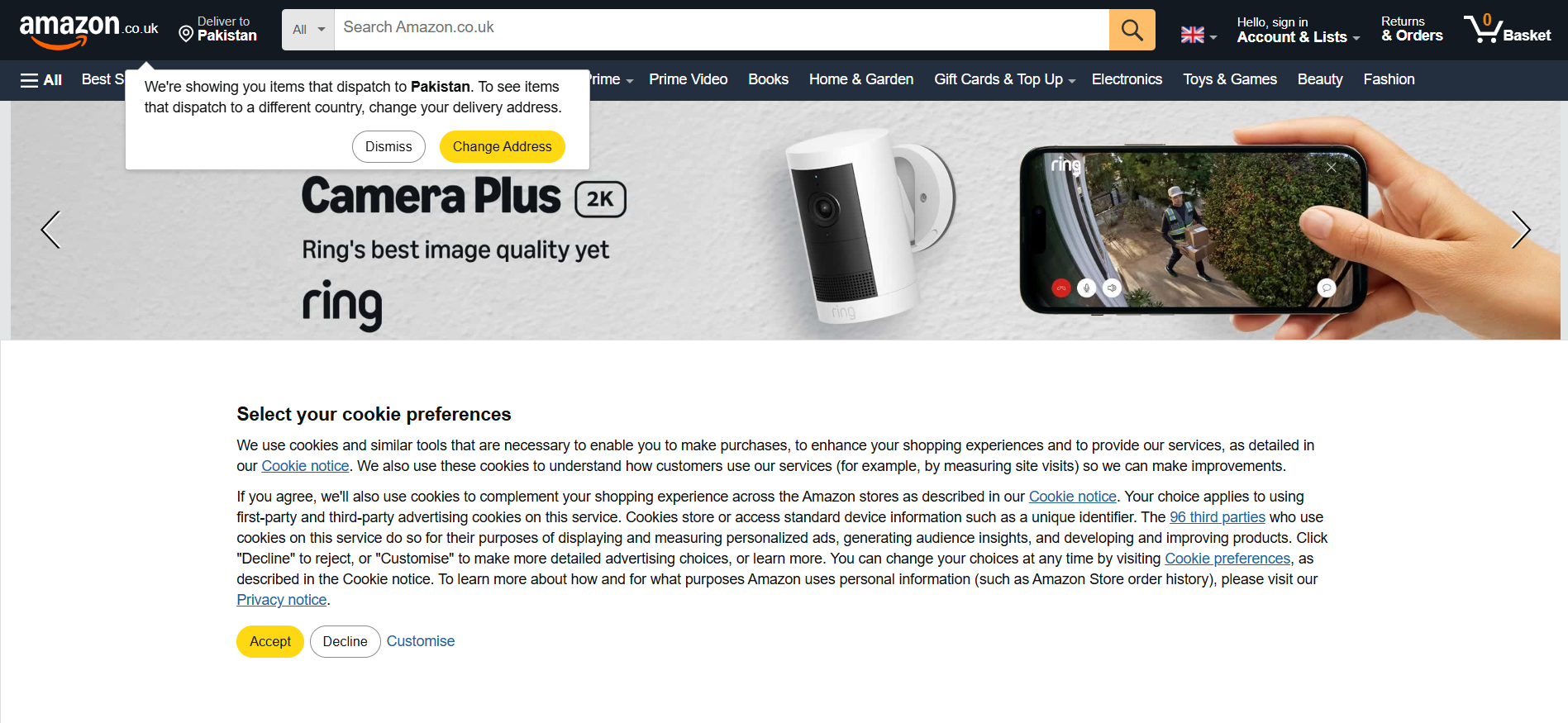
Amazon UK is one of the largest e-commerce platforms in the world, offering a vast marketplace for businesses to sell their products. It is particularly ideal for businesses looking to scale quickly and gain access to Amazon’s huge customer base. Sellers can manage inventory, track sales, and leverage Amazon’s vast network for shipping and fulfillment.
Features
- Global marketplace access with UK-specific features
- Inventory management and order tracking
- Fulfillment by Amazon (FBA) integration
- Sales reporting and analytics tools
Reviews
Amazon UK is favored by large-scale retailers for its massive reach and seamless shipping and fulfillment services. However, the fees and competition can be significant drawbacks for smaller sellers.
Pros
- Access to Amazon’s massive customer base
- Seamless shipping and fulfillment options
- Extensive support and resources for sellers
Cons
- High fees and commissions
- Fierce competition from other sellers
Final Verdict
Amazon UK is an excellent choice for large retailers and businesses looking to tap into a massive marketplace with global reach, though the fees and competition can be challenging.
#3. eBay UK – Best for Auctions and Marketplace Selling

eBay UK offers a popular marketplace for sellers looking to sell items through auction or fixed-price listings. It is particularly well-suited for businesses dealing with unique, rare, or collectible items, as well as small to medium-sized sellers looking for a less formal platform than Shopify or Amazon.
Features
- Auction-style and fixed-price listings
- Payment processing via PayPal or other gateways
- Inventory management and reporting tools
- Multi-channel selling integration (e.g., eBay, Etsy)
Reviews
eBay UK is highly regarded for its flexibility, allowing businesses to use either auction or fixed-price listings. It’s especially popular with smaller businesses and hobbyist sellers. However, competition and fees can sometimes limit profitability.
Pros
- Auction and fixed-price selling options
- Ideal for niche markets and collectibles
- Multi-channel integration capabilities
Cons
- Higher fees and commissions
- Competitive and crowded marketplace
Final Verdict
eBay UK is ideal for businesses looking to sell niche or unique items via auctions or fixed-price listings. It offers flexibility and access to a wide customer base, though it may not be the best for high-volume sales.
#4. Argos – Best for Large Retailers with a Brick-and-Mortar Presence
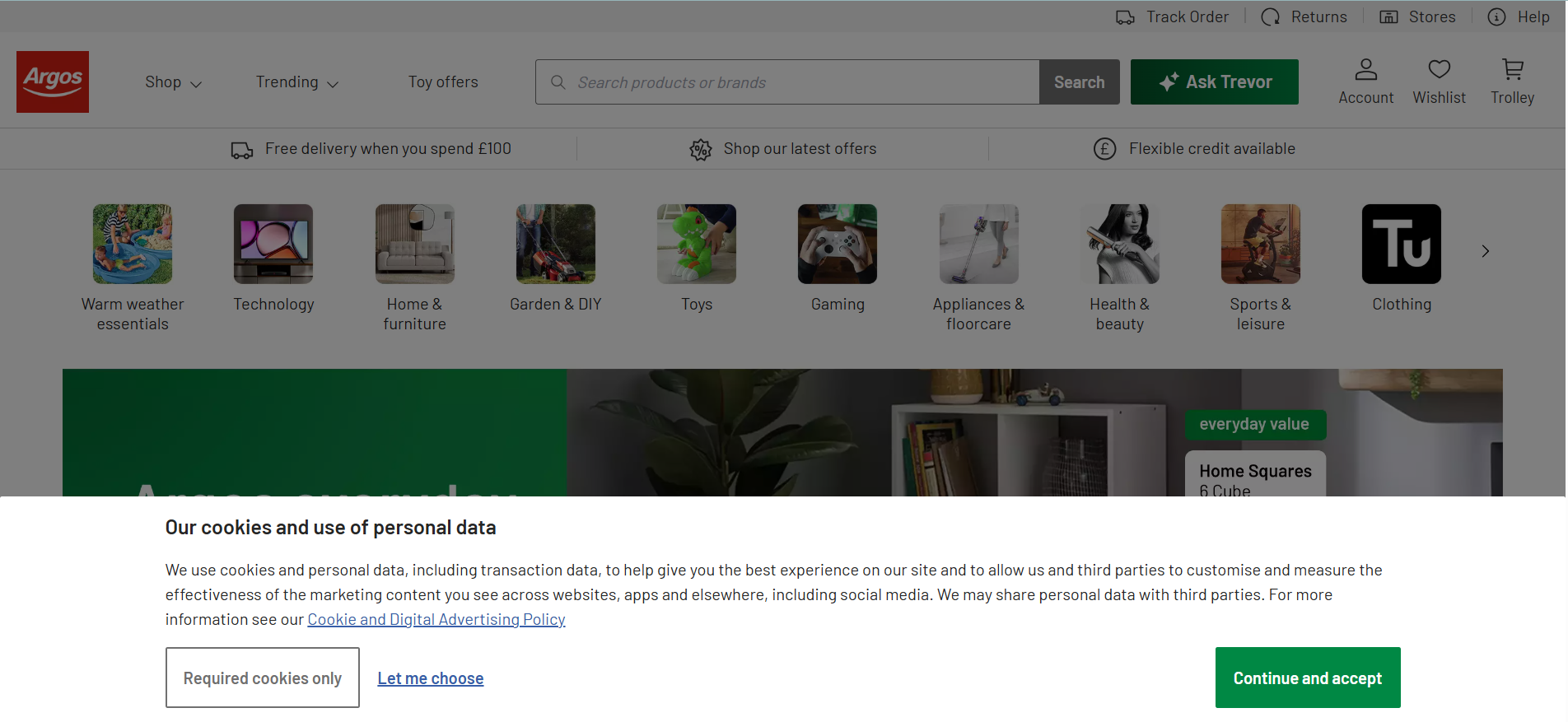
Argos is a UK-based retailer known for its catalog-driven sales model. It offers an e-commerce platform that allows businesses to sell a wide range of products, especially for larger retailers with a physical presence. The platform integrates well with Argos’ retail stores, providing an omnichannel shopping experience for customers.
Features
- Integration with Argos stores for click-and-collect
- Inventory management and real-time stock updates
- Multi-channel sales capabilities
- Payment and order tracking
Reviews
Argos is ideal for businesses with an established physical presence looking to expand online. Users love the integration with brick-and-mortar stores but note the limitations in customization and fees for listing products.
Pros
- Integration with physical stores for click-and-collect
- Ideal for large-scale retail operations
- Reliable platform for high-volume sales
Cons
- Limited customization options
- Fees for listing products
Final Verdict
Argos is best suited for large retailers with an existing brick-and-mortar presence who want to offer a seamless omnichannel experience for their customers.
#5. Tesco – Best for Supermarket E-commerce

Tesco, one of the largest supermarket chains in the UK, offers a robust e-commerce platform for selling groceries and other goods online. Tesco’s platform is designed for businesses that want to sell products similar to what’s available in supermarket chains, focusing on convenience and fast delivery.
Features
- Online grocery and product catalog management
- Delivery scheduling and fulfillment
- Real-time inventory and order tracking
- Multi-region and multi-currency support
Reviews
Tesco’s platform is known for its smooth user experience and efficiency. It’s particularly useful for businesses in the food and beverage sector. However, it can be difficult for smaller businesses to compete with large brands.
Pros
- Perfect for businesses in the grocery and retail sector
- Seamless order and fulfillment processes
- Strong customer support and resources
Cons
- Competitive marketplace with established players
- Best suited for larger businesses in specific industries
Final Verdict
Tesco is an excellent option for businesses in the grocery or retail industry looking for a powerful platform to handle high-volume sales and complex product listings.
#6. Asda – Best for Multi-Channel Retailers
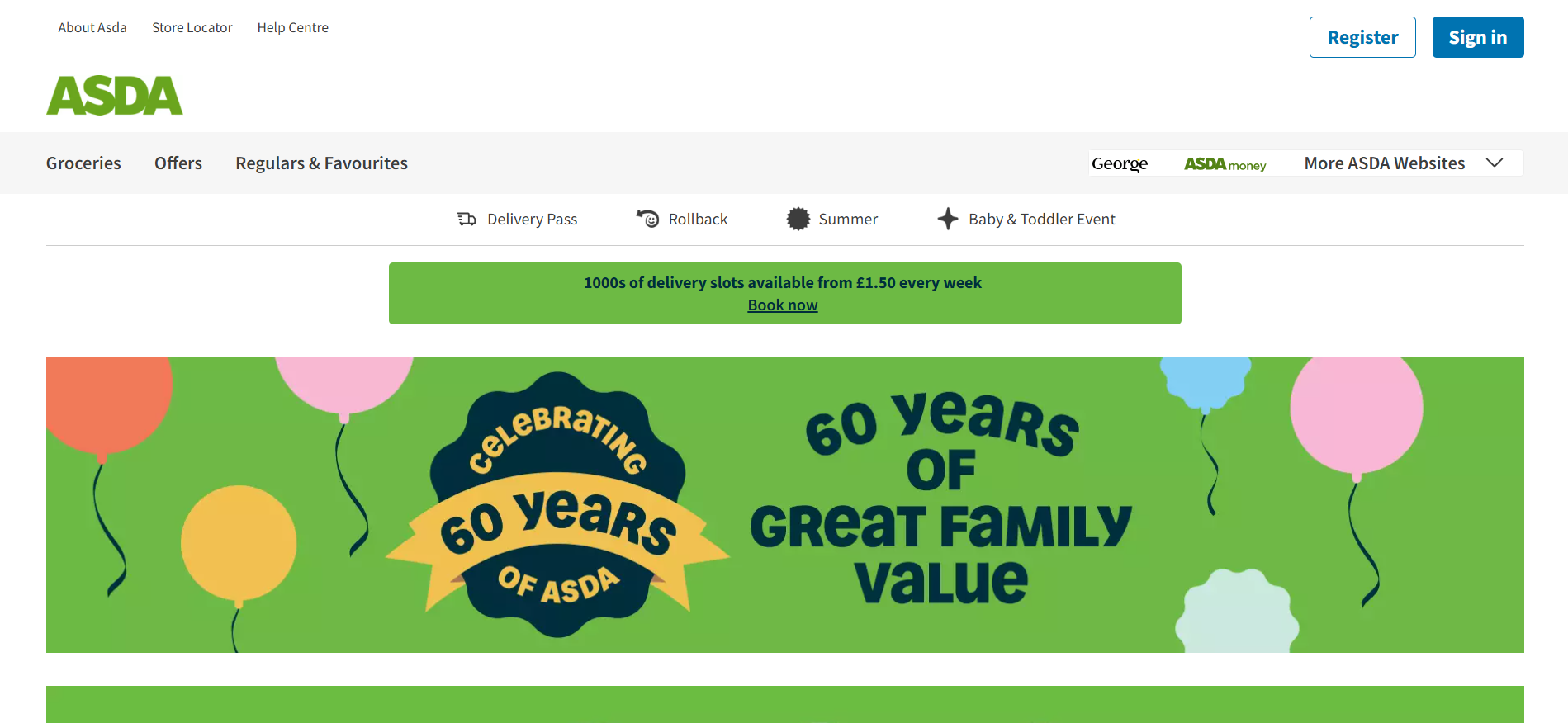
Asda offers an e-commerce platform tailored for businesses selling physical products through multiple channels. It enables seamless integration with physical stores, helping businesses manage online and offline sales in one system. Asda’s platform is designed for retailers with multi-location needs.
Features
- Click-and-collect and delivery options
- Inventory synchronization across multiple channels
- Multi-currency and multi-language support
- Integration with other business tools (e.g., payment processors)
Reviews
Asda’s platform is ideal for retailers looking to integrate their online and physical operations. Users appreciate the seamless synchronization, but it may not be as flexible as other e-commerce platforms like Shopify for customization.
Pros
- Seamless integration with physical stores
- Multi-channel retail and payment support
- Reliable delivery options
Cons
- Less customization compared to Shopify
- Best suited for multi-location retailers
Final Verdict
Asda is an excellent platform for businesses operating in multiple retail locations and needing a multi-channel e-commerce solution.
#7. Marks & Spencer (M&S) – Best for High-End Retailers
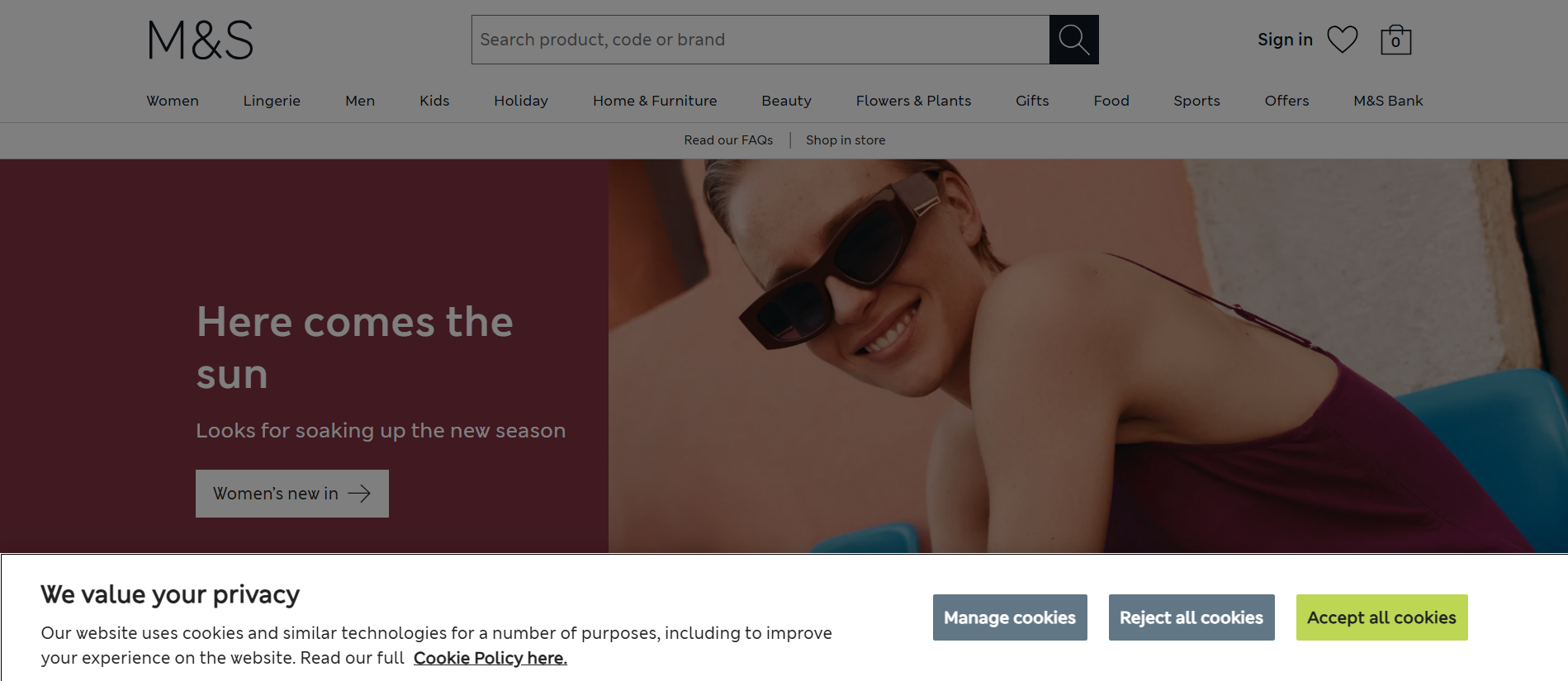
Marks & Spencer offers a premium e-commerce platform for businesses that focus on high-end or specialty products. M&S’s platform emphasizes high-quality product imagery, easy navigation, and smooth checkout processes, making it perfect for luxury retailers.
Features
- Premium product catalog management
- High-quality product imagery and descriptions
- Real-time order and inventory tracking
- Seamless integration with M&S stores
Reviews
Marks & Spencer’s platform is lauded for its sleek design and intuitive navigation. However, smaller retailers may find it challenging to compete in the premium market segment.
Pros
- Ideal for high-end and luxury goods
- Sleek and premium design
- Strong integration with M&S stores
Cons
- Best suited for businesses in the luxury segment
- High competition in the premium market
Final Verdict
Marks & Spencer is the ideal choice for businesses offering high-end or luxury products looking to provide a seamless e-commerce experience.
